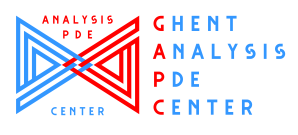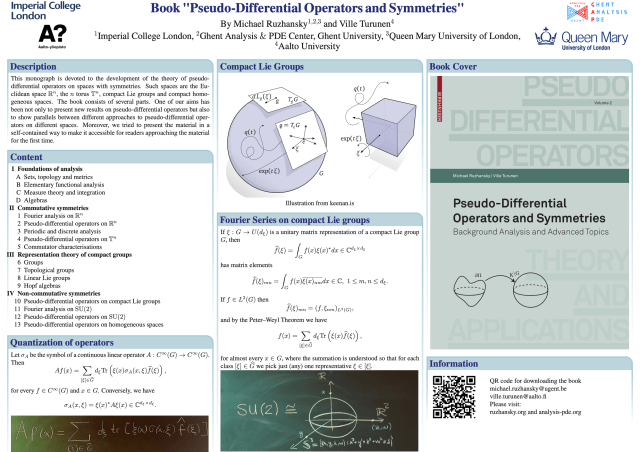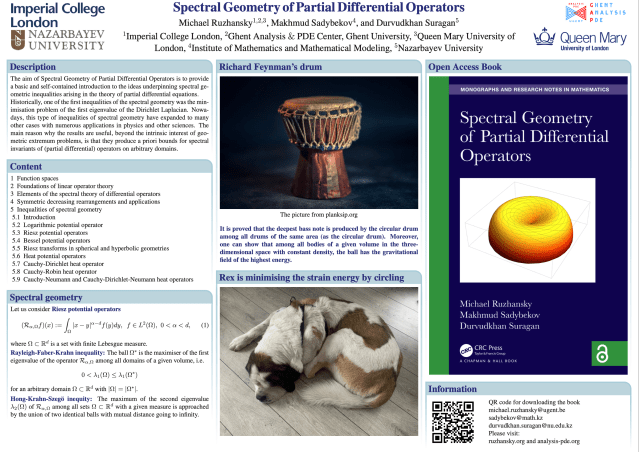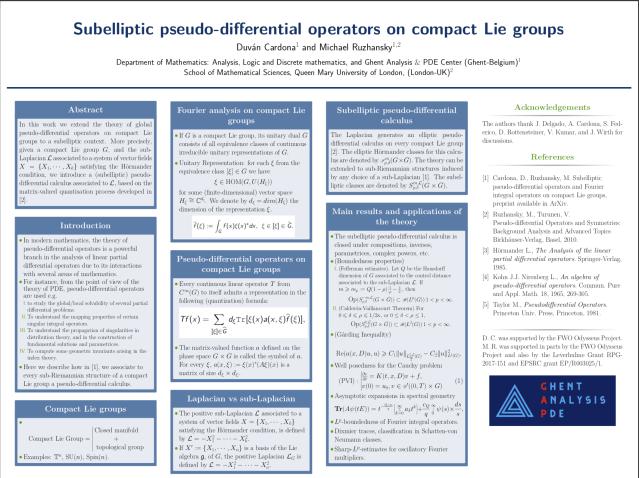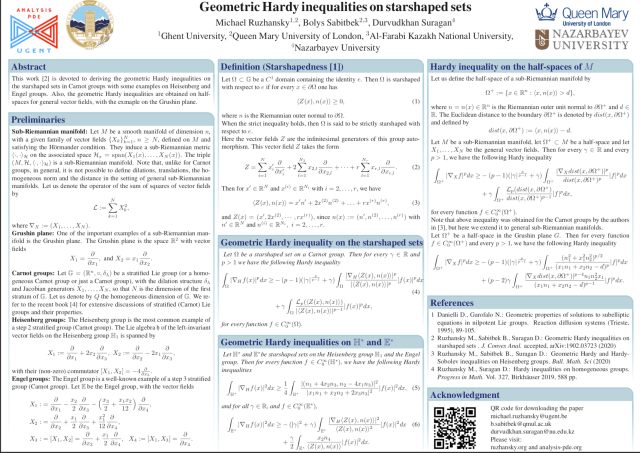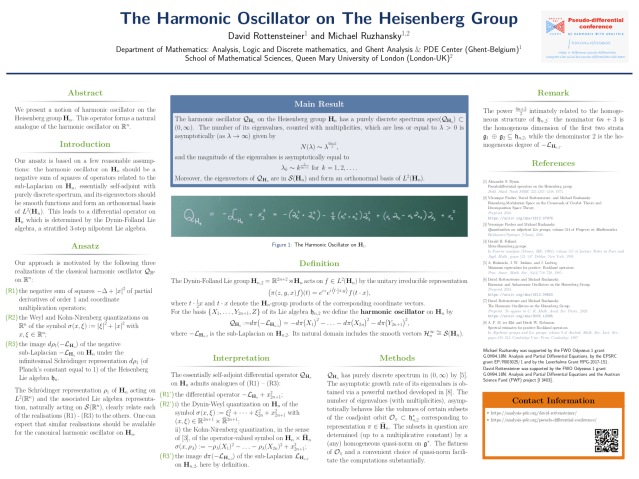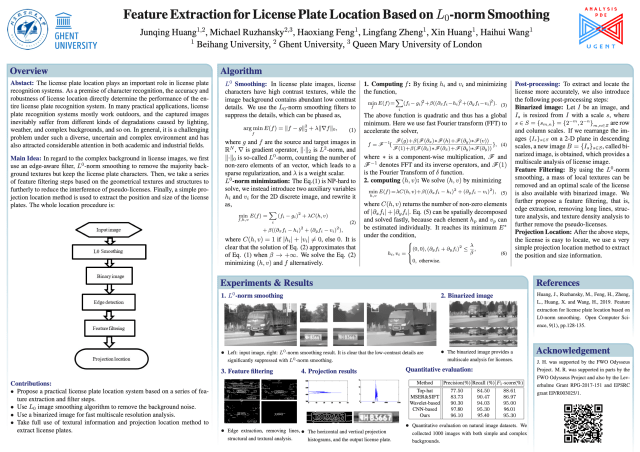Welcome to the Ghent Analysis & PDE Center!
We welcome you to the intercontinental research group in Analysis and PDE centred at Ghent University. This website is devoted to explaining the research progress in the field of analysis and PDE’s and related topics linked to Michael Ruzhansky‘s research at Ghent University and to the research of other associated colleagues.
The research interests include functional analysis, Fourier analysis, noncommutative analysis, geometric analysis, spectral theory, partial differential equations (PDE) of different types, harmonic analysis, nonharmonic analysis, subelliptic analysis, wavelets and frames. function spaces, functional inequalities, pseudo-differential operators, fractional derivatives, special functions, Fourier integral operators, microlocal analysis, time-frequency analysis. inverse problems, and their interplay with each other and with other fields.
We are also interested in applications of the above research, in its numerical and computer science aspects (e.g. in medical imaging or other applied problems), and in related questions of mathematical physics and mathematical biology.
Our research group has earned many grants including
- 2021-2028 Methusalem Programme “Analysis & PDE”
- 2018-2023 FWO Odysseus 1 Project: Analysis and Partial Differential Equations
- FWO and BOF grants
- LMS Early Career Fellowship
- EU H2020 Marie Curie Incoming Fellowship
- EPSRC and Leverhulme Trust grants
and prizes/awards including
- Ferran Sunyer I Balaguer Prizes
- Daiwa Adrian Prize
- Dorothy Hodgkin Prizes for PhD projects
- ISAAC Award
- Elsevier Scopus “Top researcher in Natural Sciences” award
- Asian Universities Alliance (AUA) Scholars Award
- Heidelberg Laureate Forum grants, etc.
We invite you to explore our website, where you will find the latest news, upcoming events, listings of people and publications, etc.
Presentation of our GAP Center (click to see)
Our poster
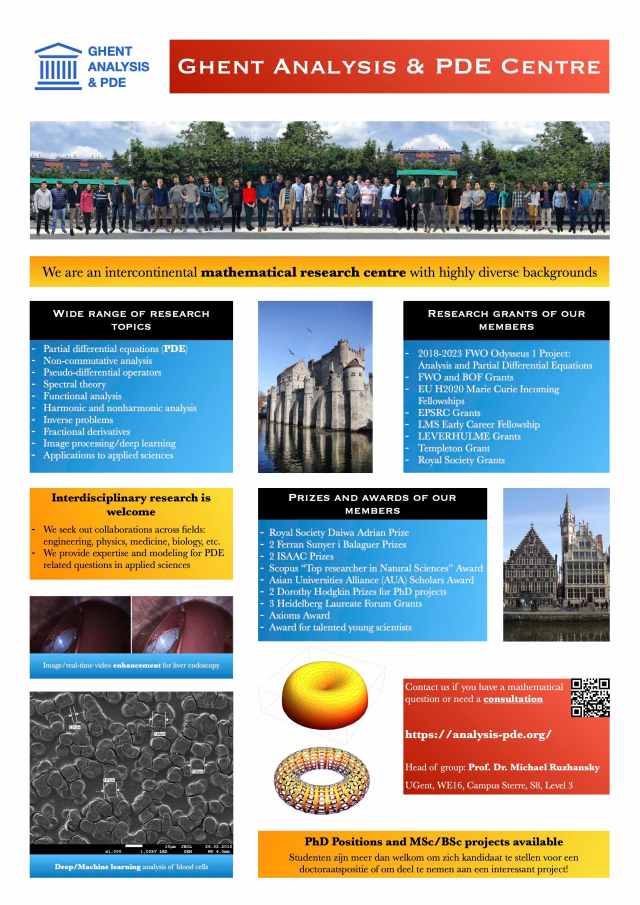
ChatGPT modified description of our Analysis & PDE Center
Ghent Analysis & PDE Center is a research group in mathematics that focuses on the study of partial differential equations (PDEs) and their applications. The group is based at Ghent University in Belgium and is led by Professor Michael Ruzhansky.
The Ghent Analysis group is particularly interested in the analysis of PDEs on manifolds, such as Lie groups, homogeneous spaces, and manifolds with singularities. They also study the properties of PDEs with variable coefficients and singularities, as well as the spectral theory of differential operators.
The group’s research has applications in a variety of fields, including mathematical physics and engineering. They have also made significant contributions to the theory of pseudo-differential operators, which are used in the study of wave propagation and scattering.
In addition to their research activities, the Ghent Analysis group is also involved in training the next generation of mathematicians. They organize seminars, workshops, and conferences to share their research findings and collaborate with other researchers in the field.
The Ghent Analysis & PDE Center at Ghent University serves as a hub for research on partial differential equations. The center brings together researchers from different disciplines to collaborate on projects related to analysis and PDEs, and provides a platform for sharing knowledge and expertise.
Overall, the Ghent Analysis & PDE Center at Ghent University is an important player in the field of mathematical analysis, particularly in the study of partial differential equations. Their work has important implications for a wide range of applications and has helped to advance our understanding of these complex mathematical objects.
